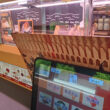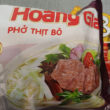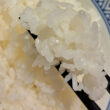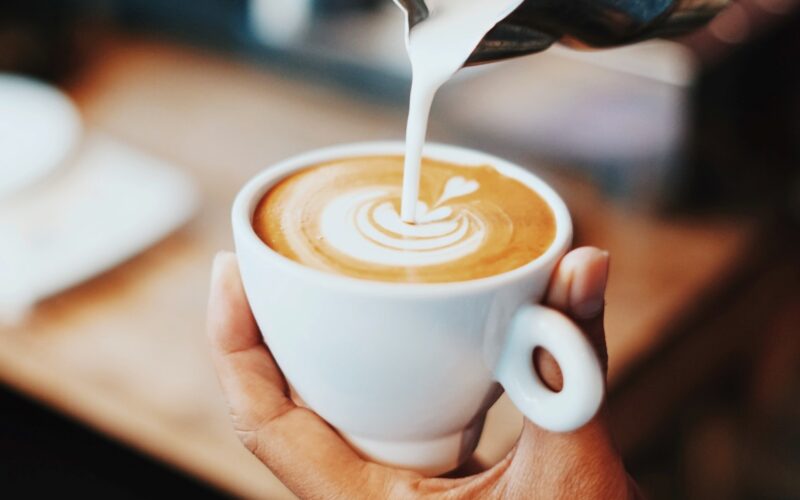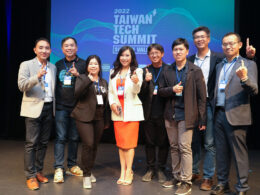The coffee market in Taiwan is enormous. Statistics from the International Coffee Organization show that the Taiwanese drink 2.85 billion cups of coffee a year, and each person consumes an average of 204 cups a year, with a market value of about NT$80 billion a year.
Taipei, Taiwan (Business Northeast) – In Taiwan, coffee is a common drink. There are many brands in the coffee market in Taiwan, and the density of convenience stores is quite high. All brands are trying their best to break through the siege, find differences, and strive to grow. “Louisa Coffee”, the leader in the number of branches, first opened its fitness brand in CITYLINK in January, combining coffee with a fitness diet and high-protein drinks. The first Thai restaurant “Pikul” has officially entered the Xinyi District. “Ikari Coffee” plans to co-brand with old restaurants and Michelin restaurants this year, so that you can enjoy famous meals in the coffee shop and announced entering the catering market. “Starbucks Coffee” also continues its plan to open special stores. It had opened a Starbucks Zhongpu Barn store converted from a 45-year-old barn this year, as well as the most beautiful cherry blossom store in Linkou.
How much do Taiwanese like to drink coffee? According to statistics from ICO, Taiwanese drink 2.85 billion cups of coffee a year, with an average consumption of about 204 cups per person a year, and the market output value is about NT$80 billion a year. Coffee has become a daily necessity for office workers, students, and even housewives, ranging from cheap coffee to specialty coffee. Many other industries have stepped into the coffee industry and attacked the black gold market. For example, BaFang Dumpling bought Dante Coffee in 2020 and has launched three new stores by the end of 2021. PX Mart is also actively exploring the coffee takeaway market. Currently, the top three coffee brands are Louisa Coffee, Starbucks Coffee, and 85 Cafe.
Even in the face of such huge market demand, the competition is quite fierce. Mainly because the coffee industry has low barriers to entry, including supermarkets, convenience stores, catering companies, and fast food companies all come to share this pie. Businesses from different industries in Taiwan or abroad have also entered the Taiwan coffee market. From the quality of coffee beans, professional brewing to various online ordering, and delivery functions, it can be said that the progress is quite fast, and the coffee industry is racking its brains to develop vitality. Coupled with the high density of convenience stores in Taiwan, distributed by the total population, there is an average of one convenience store for every 2,000 people. The density is higher than that of Japan where the total number of convenience stores is five times of Taiwan. You can buy a cup of cheap freshly brewed coffee at any time in Taiwan.
With such fierce competition, the coffee market is gradually becoming saturated. In addition to the rise of Instagram model coffee shops in recent years, the price of raw coffee beans has doubled in two years under the influence of inflation and the COVID-19 epidemic. It’s the reason why brand owners formulate new strategies, expand market share, and pursue revenue growth. In addition to the cross-border joint creation of new coffee territory, Louisa Coffee focuses on design inversion, local creation, and campus development. It hopes to develop a more refined coffee shop environment while deeply cultivating the community and campus. Among them, the Wanhua Dong Yuan store and the Taipei circle store are designed to bring a new look to the old street. In addition, the brand-customer group under the age of 40 accounts for 70%, so it plans to enter more than 10 universities and colleges such as NTU, Taiwan Tech, and NTHU to develop campus stores.
At the end of last year, Ikari Coffee cooperated with Hutong Roast Pork and Master Rong to launch New Year dishes. This year, it presents a transformational look with a new identification color and a new LOGO, announcing that it has officially entered the catering industry from cafes. In addition to the upcoming Hutong Roast Pork Donburi, it will also form alliances with other well-known old restaurants and Michelin restaurants to enhance the quality of meals, increase uniqueness, and increase revenue from afternoon to dinner. It is expected to increase its revenue by 30% of the camp with new food and beverage formats and hopes to transform into the most delicious coffee brand.
In addition to the general store exhibition plan this year, Starbucks is focusing on expanding its specialty stores to attract consumers’ pilgrimage. Last year, the Nanchang store in Nanzi in Kaohsiung received the warm sunshine of southern Taiwan with a single-sloped roof “lightbox”, which is full of greenery and a humanistic atmosphere and has become a popular photo-taking spot in the local area. The Chiayi Zhongpu Barn Store, which debuted in January this year, is located on the Alishan Highway. It was rebuilt from a 45-year-old barn. The original rice conveying equipment was specially preserved. At the same time, the store-limited “Alishan Honey Pomelo Oolong Tea” was launched. The first independent store in Linkou, Zhongshan Store, uses 11 beautiful pink yae Sakura trees with glazed roof tiles and earth-colored buildings, presenting an elegant Japanese style, creating a dreamy experience of enjoying flowers and drinking coffee under the sakura trees. In order to attract female consumers, it is specially introduced “Freshly Baked”, consumers can enjoy “freshly baked pastries” with ingredients directly delivered from France and “freshly baked biscuits” made from high-quality New Zealand grains and dairy products in this store.
In addition to opening the new exhibition stores, we continue to look for high-quality coffee beans, train coffee masters in the black aprons to serve in the store, design various interactive activities with consumers, and enhance the digital experience. For example, the just-concluded 24th-anniversary quiz raffle and the first launch of the 24th anniversary “ID card digital discount” friend sharing activity are all to increase consumers’ stickiness to their brand.
The seemingly saturated Taiwan coffee market contains huge potential business opportunities. Compared with the average annual coffee consumption of 353 cups and 370 cups per person in Japan and South Korea, the current annual average of 204 cups in Taiwan is still having a large space that can grow. How to provide differentiated products and increase store features, enhance brand recognition and stickiness, go deep into local or ethnic groups, and use the digital age to interact and communicate with consumers are the keys to winning. Of course, the most important thing is to provide a cup of high-quality coffee and increase the “atmosphere experience” when coffee gluttons consume and drink in the store, so that everyone is willing to come, to create an invincible position.



